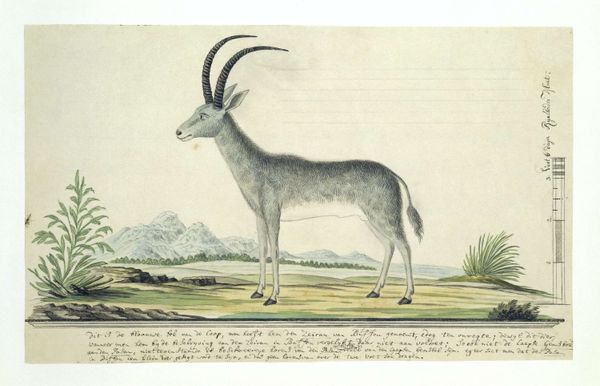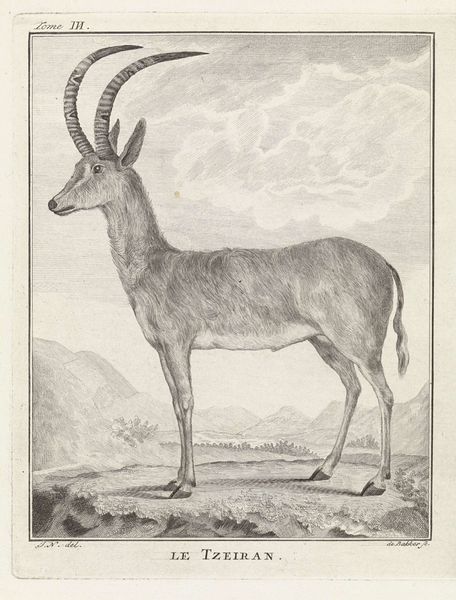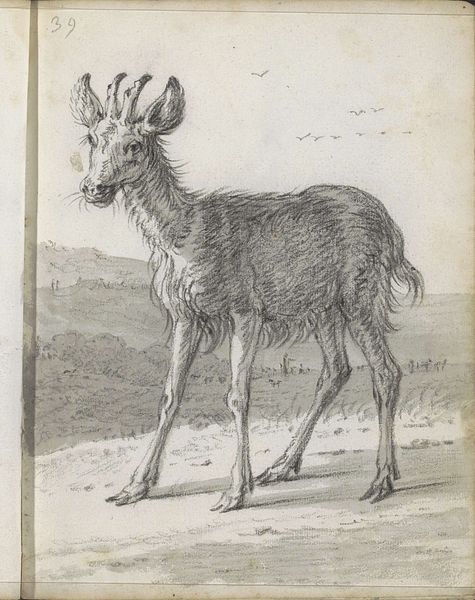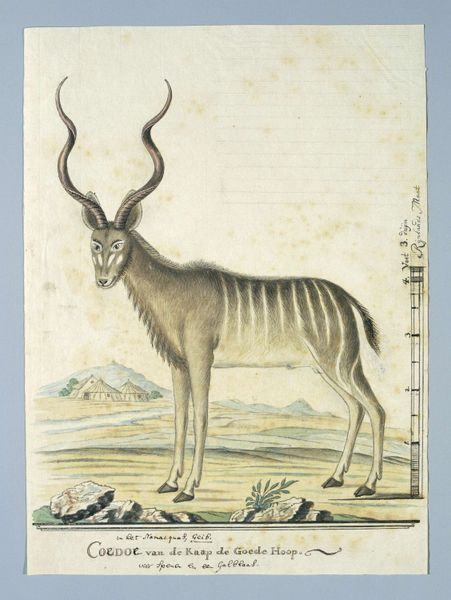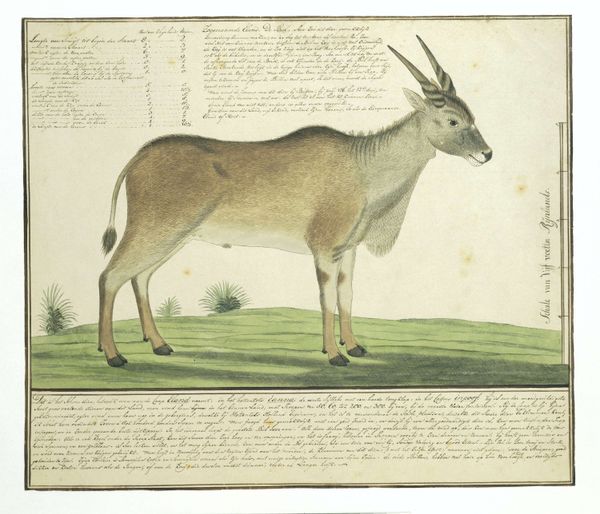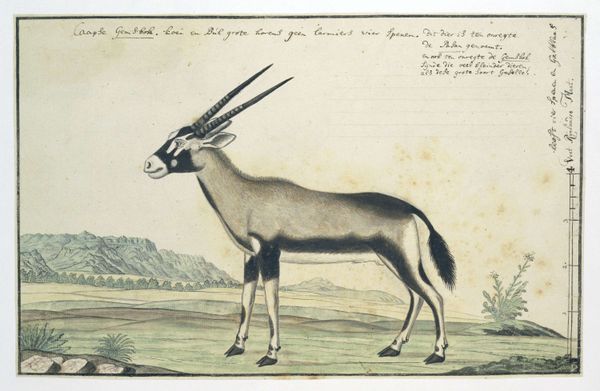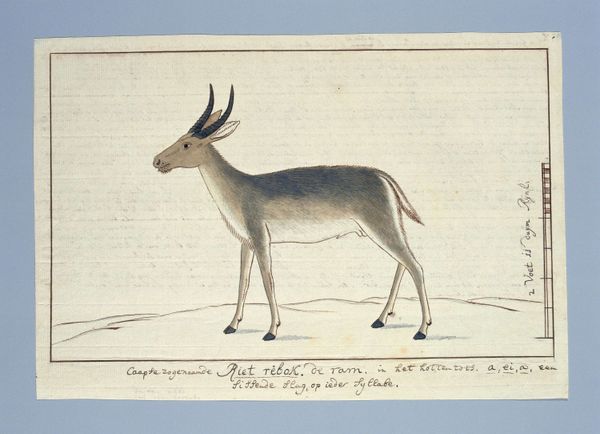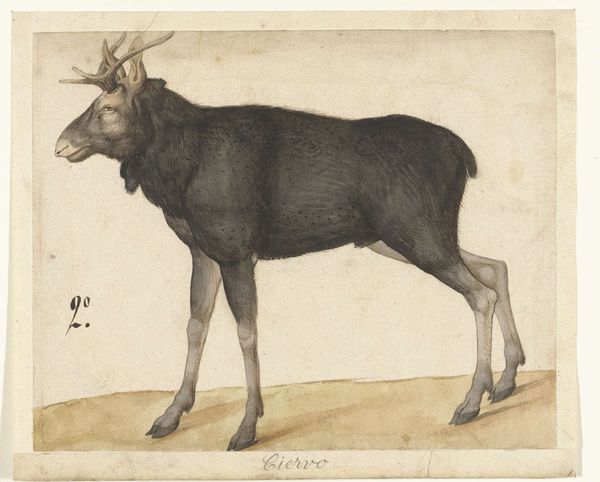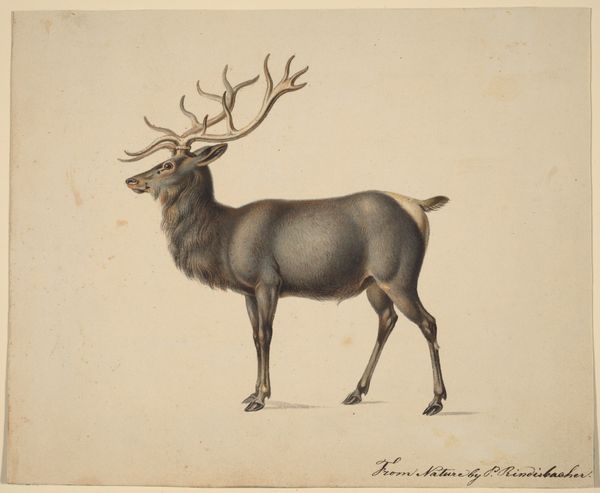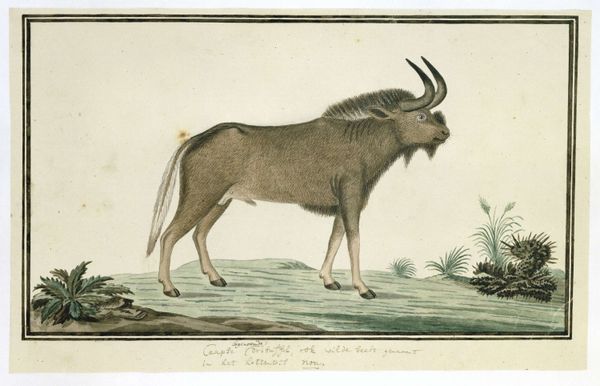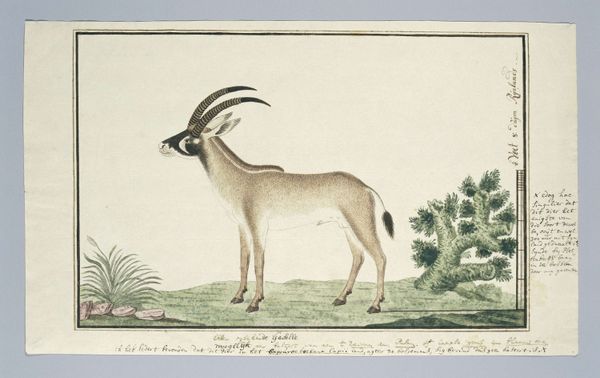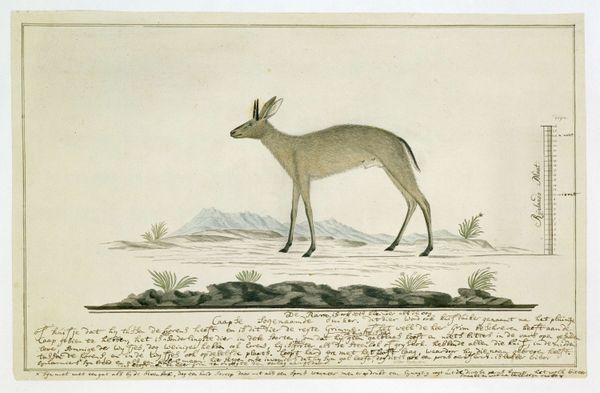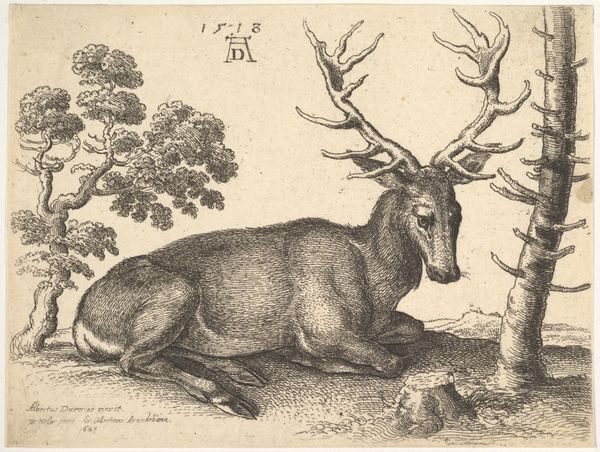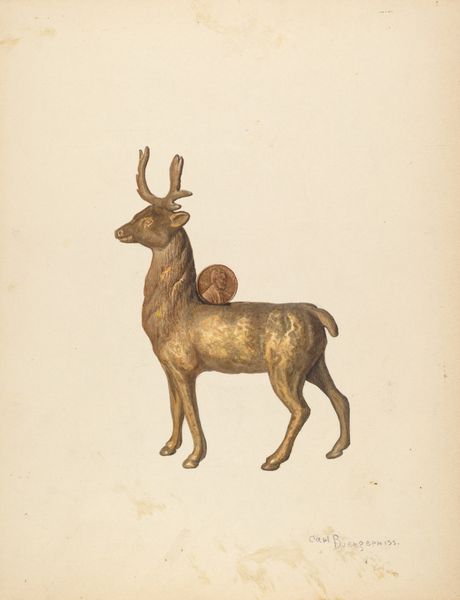
drawing, print, paper
#
drawing
#
green and blue tone
# print
#
green tone
#
paper
#
green background
#
muted green
#
animal portrait
#
france
#
water
#
animal drawing portrait
#
watercolour illustration
#
green and blue
#
watercolor
#
warm toned green
Dimensions: 117 × 162 mm
Copyright: Public Domain
Curator: Here we have Nicolas Huet the younger’s, “A Kudu,” a drawing housed right here at The Art Institute of Chicago. Editor: Wow, there's such a tenderness in the rendering. It makes you want to reach out and stroke its neck—it feels like I know it somehow. Is this a watercolour illustration? Curator: Yes, executed in watercolour and print on paper. It is indeed captivating. Notice the detail rendered through precise linework, indicative of printmaking processes. This likely implies it was not conceived as a single art object but made for broader distribution, maybe for an educational project. Editor: That softens the effect. Now I see a little something else at play. Almost like a diagram of an animal rather than an engagement. I love the use of green tones in the background too, the watercolour wash creates depth and evokes this fresh but muted environment that brings to life this gorgeous creature. I almost feel like it would have benefited if he spent less time in accurately cataloguing its components and more time with pure intuition! Curator: But is this division between science and art real? Consider the era. Enlightenment values prioritized empirical observation and documentation as means for structuring and controlling knowledge. The print’s existence becomes significant within networks of exchange, not merely as a representational study but as part of a larger enterprise of scientific distribution to facilitate a cultural fascination. Editor: Hmm, so the social implications are key here? I just like that fly casually buzzing it—gives a certain charm. Curator: Precisely! Through considering processes and function we come to appreciate "A Kudu," less as simple fauna than a complex symbol enmeshed in systems of 18th and 19th-century scientific study and its modes of display. Editor: Fair enough, seeing all these production levels allows for another kind of perspective, the life this piece must have lived and been disseminated!
Comments
No comments
Be the first to comment and join the conversation on the ultimate creative platform.
